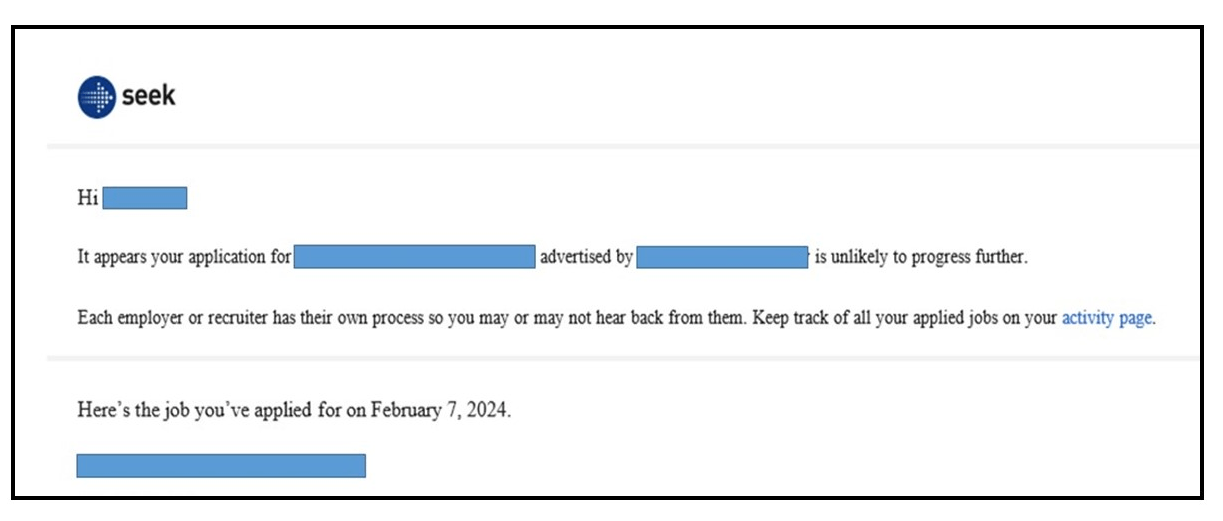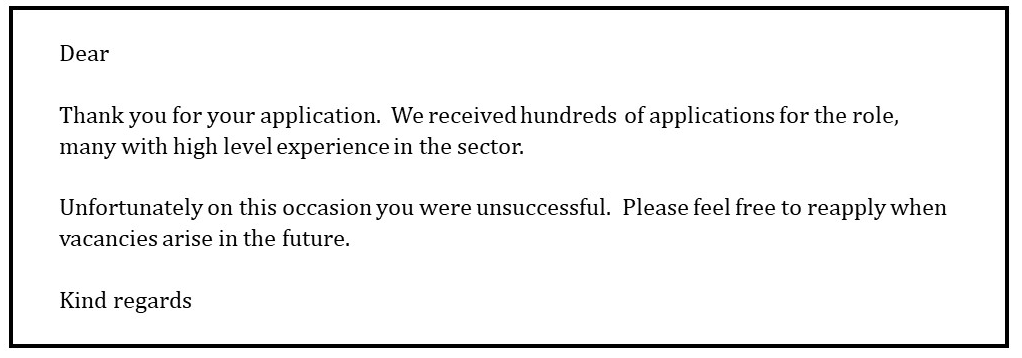Powered by MOMENTUM MEDIA
Recently, it was World Compliment Day. Set on the first day of March, it’s a terrific day to nudge positive reflection and actions for the other 364 days of the year, writes Sue Parker.

The World Compliment Day website states the purpose of the day is to spread joy through simple verbal affirmations of appreciation. And that “a sincere personal compliment costs nothing but has the potential to make an enormous impact. Professional recognition is important.”
The Merriam-Webster dictionary defines an insult as: “A gross indignity; an instance of insolent or contemptuous speech or conduct; to behave with pride or arrogance; to affect offensively or damagingly.”
This aptly describes how so many legal sector candidates, from graduate to C-suite, feel after applying for roles, are rejected at the front gate, attend interviews and are ghosted and/or receive dismissive final updates.
I’m fed up with the magnitude and intensity of candidate mistreatment in communications broadly. It is not just in the legal sector but in all professions and sectors.
The incidences have not abated despite the clarion calls for a focus on mental health in the workplace.
And it’s also gobsmacking that in 2024, with global and national trauma at record levels alongside ongoing pandemic aftermaths, any employer thinks it’s OK to behave without human dignity and care.
Imagine walking a mile in these shoes
Just imagine you are a highly experienced professional with many years of expertise and achievements. You have just spent hours preparing and tailoring an application to an important position with great enthusiasm.
Then imagine how you would feel in receiving this heartlessly worded automated message from the SEEK portal a mere few days after sending your application:

Then imagine a few days later receiving this cold, curt email from the hiring company:

How would these communications land and make you feel?
This type of disconnected, dismissive and inappropriate response is sent daily by recruiters, HR and hiring companies across Australia. Not by all, but by a great many.
In this real-life instance, the organisation champions staff and client care. You cannot make this stuff up. The recipients of similar can be your mother, father, friend, and spouse. How will they feel?
And just imagine how young people feel who are entering a profession and how their mental health is impacted. They can be your sons, daughters, or family friends.
The level of dismissiveness and potential duplicity is off the charts. The organisation in question did not receive hundreds of applications (by the number of applications listed on the two sites they advertised). It is a regular tactic to remove consequences.
Duty of care
Job hunting is mentally exhausting and stressful for everyone, be it senior executive, graduate or mid-level professional levels.
Rejection, self-doubt, confusion and depression are regular bedfellows of the job search process. Even the most outgoing and confident can and do grapple.
And for the recently redundant, unemployed, introverted or marginalised (think disabilities, ageism over 55 years old and under 25), the angst is threefold. The wellbeing and mental health impact for those unemployed for over six months is particularly devastating.
Surveys results from the Pew Research Center are disturbing. While based in America, the findings would be albeit identical in Australia. They reported that 53 per cent of adults felt they lost a piece of their identity during the job hunt process.
Another 56 per cent reported having more emotional or mental health issues due to unemployment, and 41 per cent experienced more arguments with family and friends.
The evidence is crystal clear – job hunting, unemployment and rejection have a wide-ranging impact. So, there is a huge duty of care in not just communicating but how you communicate.
Job applicants are not robots at the end of an ATS system. They are real humans with hopes, dreams, feelings and emotions applying to your company or recruitment agency.
You can forget the defensive trope of “it’s business, not personal”. It is bloody personal as livelihoods are at stake, and it’s ethical to respond in a way that does no harm.
The issue of communication
As I shared on my recent HR Leader podcast, a reason for unacceptable HR behaviours is due to a lack of EQ and communications skills.
I’ve owned a recruitment agency for 11 years, and communicating on time, respectfully and with context and depth is not hard. And don’t give the “don’t-have-time” excuse; make time.
It’s a communication skill that few seem to have to minimise backlash, provide feedback where the candidate maintains a sense of agency and self-worth. You want every candidate to feel valued and worthwhile, even if rejected.
But that requires communicating with personalisation and referencing background specifically. None of this generic “we were impressed with your skills” nonsense.
And forget the “we chose someone more aligned to our needs”. Rude, cold, cruel! No context is unacceptable, especially for roles over circa $120,000.
If a candidate has gone to an interview, they deserve a phone call before an email. Come on, laziness doesn’t cut it.
Why it matters
Inhuman responses and totally dismissive and generic rejections are not good enough, especially for mid to executive-level roles.
Apart from the damage to the wellbeing and confidence of the applicant, dismissive and cold communications destroy employer brands, candidate referrals and market perception. Word spreads.
We are drowning in global trauma, ongoing pandemic recovery, suicides, declining mental health, economic instability, overwork, and fractured communities and families. Every day for many – even in employment – can be a struggle.
Surely, it’s not too much to ask to take the time to be human to another human?
Reflect on the power of compliments across the entire hiring process, both in written and verbal form.
There is always a genuine compliment to add, which will reduce the angst of rejection and the stress for candidates.
Sue Parker is a communications, LinkedIn and executive career expert at DARE Group Australia.